GLYBURIDE - ORAL
PHONETIC PRONUNCIATION: (GLYE-bure-ide)
COMMON BRAND NAME(S): Diabeta, Glycron, Glynase, Micronase
GENERIC NAME(S): glyburide
Uses
USES: Glyburide is used with a proper diet and exercise program to control high blood sugar in people with type 2 diabetes. It may also be used with other diabetes medications. Controlling high blood sugar helps prevent kidney damage, blindness, nerve problems, loss of limbs, and sexual function problems. Proper control of diabetes may also lessen your risk of a heart attack or stroke. Glyburide belongs to the class of drugs known as sulfonylureas. It lowers blood sugar by causing the release of your body's natural insulin.
How to use GLYBURIDE - ORAL
HOW TO USE: Read the Patient Information Leaflet if available from your pharmacist before you start taking glyburide and each time you get a refill. If you have any questions, ask your doctor or pharmacist. Glyburide comes in different types of tablets which provide different amounts of the medication. Do not switch between different forms or brands of this medication unless directed by your doctor. Take this medication by mouth with breakfast or the first main meal of the day as directed by your doctor, usually once daily. Some patients, especially those taking higher doses, may be directed to take this drug twice a day. The dosage is based on your medical condition and response to treatment. To reduce your risk of side effects, your doctor may direct you to start this medication at a low dose and gradually increase your dose. Follow your doctor's instructions carefully. If you are already taking another diabetes drug (such as chlorpropamide), follow your doctor's directions carefully for stopping the old drug and starting glyburide. If you are also taking colesevelam, take glyburide at least 4 hours before colesevelam. Use this medication regularly to get the most benefit from it. To help you remember, use it at the same time(s) each day. Tell your doctor if your condition does not improve or if it worsens (your blood sugar is too high or too low).
Side Effects
Precautions
Interactions
Overdose
Images
Reviews
Faq for GLYBURIDE - ORAL
Glyburide is an oral medication that is used to control blood sugar levels in individuals with type 2 diabetes.
Glyburide works by stimulating the pancreas to produce and release more insulin, which helps to lower blood sugar levels in the body.
The recommended dosage of glyburide varies depending on the individual's condition and response to treatment. It is usually taken once or twice daily, with or without food.
Common side effects of glyburide may include nausea, stomach upset, diarrhea, dizziness, or headache. If these side effects persist or worsen, it is important to consult your healthcare provider.
Glyburide is typically not recommended for use in children, as its safety and effectiveness have not been established in this age group. It is primarily used in adults with type 2 diabetes.
Yes, glyburide may interact with other medications, including certain antibiotics, blood pressure drugs, and antifungal medications. It is important to inform your healthcare provider about all the medications you are taking to avoid potential interactions.
Yes, glyburide can cause hypoglycemia if the dosage is too high or if taken with other medications that lower blood sugar levels. It is important to monitor your blood sugar regularly and seek medical attention if you experience symptoms of low blood sugar such as sweating, dizziness, or confusion.
Glyburide crosses the placenta and may affect the baby's blood sugar levels. It is generally recommended to switch to insulin during pregnancy, as it is considered safer for both the mother and the baby.
Glyburide should be used cautiously in individuals with kidney or liver problems, as it is primarily metabolized by the liver and excreted by the kidneys. Dose adjustments may be necessary to prevent potential complications.
Disclaimer
IMPORTANT: HOW TO USE THIS INFORMATION: This is a summary and does NOT have all possible information about this product. This information does not assure that this product is safe, effective, or appropriate for you. This information is not individual medical advice and does not substitute for the advice of your health care professional. Always ask your health care professional for complete information about this product and your specific health needs.
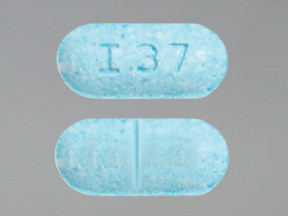
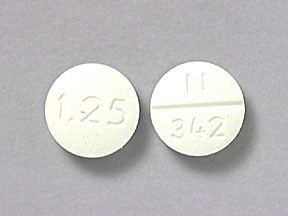
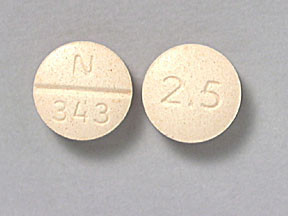
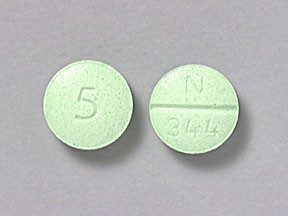
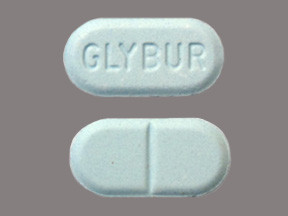
No Reviews Yet